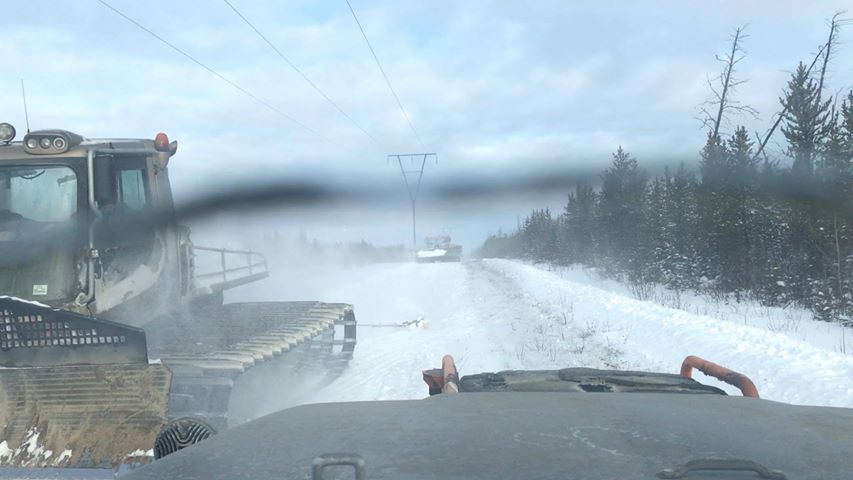The town of Churchill will be getting an early Christmas present this year.

A winter road link has been completed between Gillam and the northern community that lost its rail line in the spring.
The ice road was a joint project between Polar Industries, Fox Lake Cree Nation and Churchill’s Remote Area Services.
“The guys finished up late [Thursday] night and they’re on their way back out to Gillam so we can start our actual journey with freight on Sunday,” explained Polar Industries president Mark Kohaykewych.
“We’re doing a spiritual, traditional ceremony since we are crossing Fox Lake traditional land. We’ve been accepting a lot of freight the last week and the trucks are leaving to head up to Gillam for Sunday afternoon.”
Since making the announcement that the ice road would be built, Kohaykewych has continually stated he hoped the road would be ready for Christmas. Thanks to no huge snow dumps and cold conditions, the road is ready, though not for huge truckloads.
“We’re just starting off with two, we don’t want to go too heavy on this first journey. We definitely want the ground to harden up and we don’t want to be busting through any rivers or damaging any ice bridges that we’ve created,” Kohaykewych said. “We’re splitting the load between three cat trains, 20,000 pounds a piece.”
- Honda expected to announce Ontario EV battery plant, part of a $15B investment
- Trudeau says ‘good luck’ to Saskatchewan premier in carbon price spat
- Canadians more likely to eat food past best-before date. What are the risks?
- Hundreds mourn 16-year-old Halifax homicide victim: ‘The youth are feeling it’
The ice road was necessitated by the loss of the rail line, which is still nowhere near ready to be used again. The very public battle between OmniTrax, which owns the line, and the federal government has been taken to court.
In the meantime, the ice road will be used to take much needed supplies to the remote northern town through the winter months.
“We’re cross-docking off of the transport trucks onto sleighs that we’ve manufactured and then pulling them with what the general public would know as dozers or cat trains,” Kohaykewych said. “I’m figuring we should be on the road between 30-36 hours.”








Comments